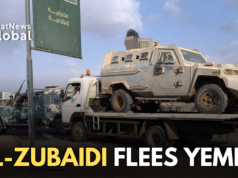Four well-known and astute experts joined this StratNews Global roundtable to examine different aspects of the rapidly evolving situation in the Mideast, where Israel, backed by the United States, is fighting not just the Hamas in the Gaza Strip, the Hezbollah in Lebanon, the Houthis in Yemen, and the theocratic regime in Iran, but also increasingly adverse international public opinion.
The discussions began with Mr Ranade, one of the country’s top intelligence analysts, explaining Israel’s dramatic use of exploding pagers and walkies talkies to take out a few thousand Hezbollah cadres in Lebanon. Veteran journalist and political analyst Dr Waiel Awwad, who’s covered the region for decades for various international media outlets, then shared some little-known insights about history of the region and the background to the current crisis.
Col. (retd) Rajeev Agarwal, who served as Director Military intelligence, and director at the ministry of external affairs before retiring recently as Asst Director of The Manohar Parrikar Institute for Defence Studies and Analyses, explained why despite so many attempts to arrive at a cease fire, with US Secretary of State Anthony Blinken making almost weekly trips to meet the various stakeholders and leaders and involved, everything changed after the July 31 assassination of Hamas leader Ismail Haniyeh in a military-run guest house in Tehran.
Kabir Taneja, Deputy Director, Strategic Studies and Fellow, Middle East, at the Observer Research Foundation, and an expert on terrorist and extremist outfits operating in the region, then explained how the October 7 attack on Israel by the Hamas had undermined Israel’s aura of invincibility, and the savage response that followed was an attempt by Tel Aviv to take that narrative back.
The conversation then moved on to various other aspects of the conflict, including Israel’s attempt at regime change in Iran, the American factor, and whether India could or should offer to mediate or facilitate peace between the warring factions, among other things. To get a wide- angle perspective of the conflict that has been dominating the headlines and dinner table conversations for over a year now, watch the full interview.
In a career spanning three decades and counting, Ramananda (Ram to his friends) has been the foreign editor of The Telegraph, Outlook Magazine and the New Indian Express. He helped set up rediff.com’s editorial operations in San Jose and New York, helmed sify.com, and was the founder editor of India.com.
His work has featured in national and international publications like the Al Jazeera Centre for Studies, Global Times and Ashahi Shimbun. But his one constant over all these years, he says, has been the attempt to understand rising India’s place in the world.
He can rustle up a mean salad, his oil-less pepper chicken is to die for, and all it takes is some beer and rhythm and blues to rock his soul.
Talk to him about foreign and strategic affairs, media, South Asia, China, and of course India.




